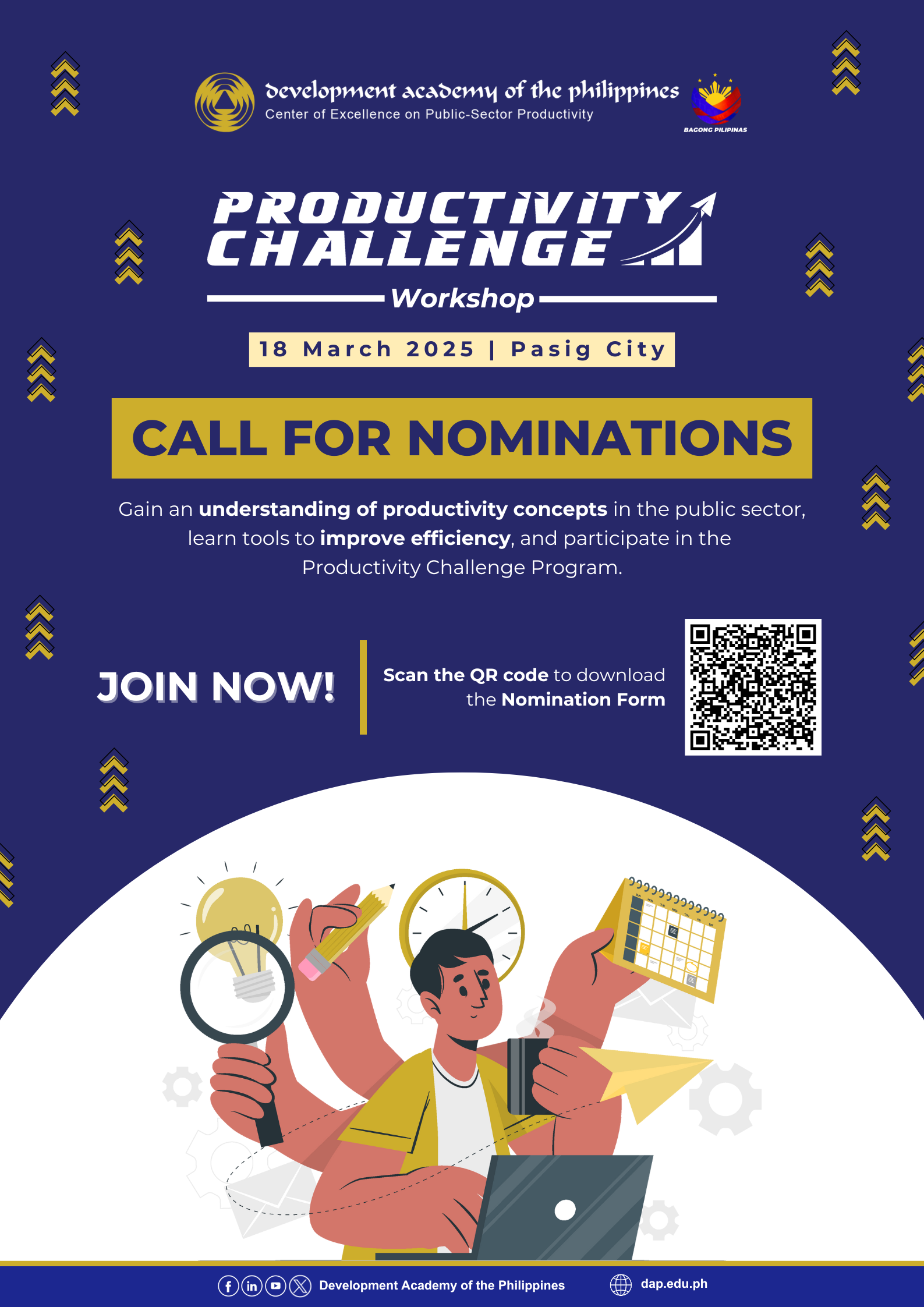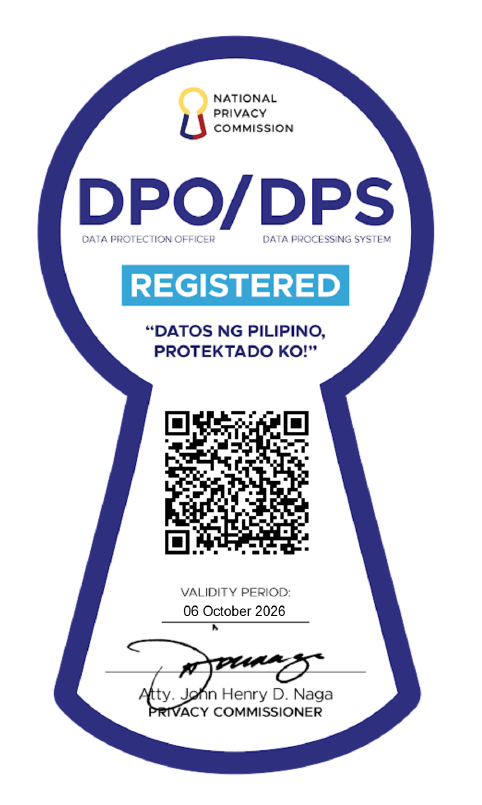The Development Academy of the Philippines (DAP), through its Productivity and Development Center (PDC), successfully completed the Full-blown Impact Assessment of the Agriculture and Fisheries Modernization (AFMA) or Republic Act (RA) 8435, a study commissioned by the Philippine Council for Agriculture and Fisheries (PCAF) of the Department of Agriculture (DA).
The project validated the findings and conclusions of the earlier AFMA rapid assessment study and assessed in greater detail the outcome as well as the benefits and costs of the AFMA implementation. It also determined the current state of A&F Sector components, made conclusions on the effectiveness of AFMA in achieving the avowed goals of sector modernization, and provided recommendations on policy reform for future directions or alternative programs for the further improvement of the A&F sector.
The DAP-PDC conducted the study for the Luzon Island Cluster (Phase 1) from June 2019 to June 2020 to further confirm the initial findings and conclusions of the rapid assessment in 2015. From the results of the Phase 1 Full-blown Impact Assessment (FBIA), the sample base was expanded to widen the “universe” of program beneficiaries in Visayas and Mindanao. Similarly, both phases of the study looked at the five main components of the AFMA law including its 13 chapters.
The study employed a mixed-method research design composed of secondary data review, focused group discussions (FGDs), key informant interviews (KIIs), and perception survey. The FGDs and KIIs were conducted from January 2020 to May 2021 in Regions 1, 2, 3, 4-A, 4-B, 5, 6, 10, 11, and 12. These FGDs/KIIs had selected officers and personnel from regional DA offices, local government units and other concerned agencies, provincial, municipal agricultural officers, private sector representatives, members of civil society organizations, farmers, and fisher folks as participants/respondents. On the other hand, the perception survey was conducted among the fishing and farming households in the country from May to July 2020 for Luzon regions (Survey Phase 1) and in May to July 2021 for Visayas and Mindanao regions (Survey Phase 2). The Phase 1 survey covered the provinces of Camarines Norte, Masbate, Nueva Ecija, and Aurora. The Phase 2 survey covered the provinces of Agusan del Norte, Bukidnon, Camiguin, Cebu, Surigao del Sur, Negros Oriental, Norther Samar, and Leyte. These provinces were identified by selecting two regions to represent the extreme conditions of the benefits from AFMA (higher/lower benefits) in Luzon, Visayas, and Mindanao, respectively.
The final report is divided into three volumes to highlight the cross-cutting themes and analyses and maintain a coherent narrative flow.
With the formal closure of the project, Ms. Estrella V. Tulay, Chief of PCAF’s Planning, Monitoring, and Knowledge Management Section emphasized the significance of the study results in its ongoing government assistance efforts to address the sector challenges during these unprecedented times. More importantly, the sound recommendations from the report will remain highly-relevant in the coming years as the agriculture sector modernization calls for policy and structural reforms that need to be legislated and institutionalized. Also, as President Rodrigo Roa Duterte recognized the department and the excellent programs under the leadership of the Agriculture Chief, Secretary William D. Dar, in advancing the country’s agriculture sector by refocusing current interventions to lead a higher level of food production and ensuring food security in the midst of the pandemic, the DA-PCAF looks forward to a more agile, resilient, and future-ready programs and interventions to sustain and fulfill further the sector’s modernization goal.
The DAP through its PDC-Productivity Development Research Office is now ready to carve out a series of upcoming advocacy activities to echo further the results of the study through mini webinars and other information drive initiatives. A presentation to the National Agricultural and Fishery Council is also in the pipeline of activities for 2022 to share the results of the AFMA impact assessment.
The DAP-PDC hopes to continuously embark on the conduct of in-depth studies for the agriculture and fishery sector, provide technical assistance as part of its development function to help increase adoption of current and new approaches for enhancing productivity and competitiveness in the said sector, and develop the capabilities of the sector’s key stakeholders. For more information, visit www.dap.edu.ph, or email pdc.pdro@dap.edu.ph.
-xxx-

Volumes 1 to 3 of the Full-blown Impact Assessment of the Agriculture and Fisheries Modernization Act (AFMA):
An Integrative Report




